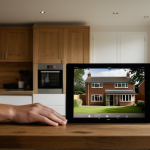Mastering spoken Arabic unlocks rich cultural connections and practical communication. Immersive online courses offer tailored lessons, real-life conversations, and dialect insights to build confidence quickly. Whether you’re starting fresh or improving skills, structured audio and video tools make learning efficient and engaging. Discover how focused practice and expert guidance can transform your ability to speak Arabic naturally and fluently.
Essential Resources for Learning Spoken Arabic
Enhance your skills and learn spoken Arabic online starts with choosing the right platform. The best online courses feature authentic content from native speakers, offering dialect-specific lessons in Moroccan, Egyptian, Levantine, and other regional variants. High-definition audio and video lessons, paired with transcripts and subtitles, help learners develop pronunciation and listening skills effectively.
Also to see : What are the ethical considerations for UK journalists today?
Platforms like the “Al Kaamil” program focus on immersive, real-life conversations, ensuring learners understand regional nuances. Many services allow selecting preferred dialects, making the learning process adaptable to individual needs. Additionally, features such as interactive exercises, voice practice tools, and cultural insights make these platforms comprehensive.
Criteria for high-quality resources include voice clarity, dialect diversity, and pedagogical structure. Top sites also provide free lessons and downloadable PDFs, enabling consistent practice offline. As highlighted by various user testimonials, utilizing these resources significantly boosts confidence in conversational Arabic.
Also to read : Dive into korean novels: your gateway to captivating tales
Comprehensive Guide to Spoken Arabic Basics
Mastering spoken Arabic basics begins with correct pronunciation. Focus on challenging sounds, such as the ‘ع’ (ayn) and ‘غ’ (ghayn), and pay attention to intonation to reflect natural Arabic speech rhythm and intonation. Regular Arabic pronunciation practice tools and listening to native speakers through an Arabic podcast for learners can greatly improve your accent and auditory comprehension.
Building a core bank of essential Arabic phrases for beginners accelerates practical conversational skills. Common greetings, polite expressions, and useful Arabic vocabulary such as “marhaba” (hello), “shukran” (thank you), and “min faḍlik” (please), appear frequently in daily interactions. Quick access to free Arabic speaking lessons and Arabic language flashcards aids efficient vocabulary recall and helps solidify practical conversational Arabic.
A grasp of foundational Arabic grammar for beginners underpins effective expression. Understanding Arabic sentence structure—subject, verb, and object order—provides a template for basic communication. Simple verb conjugation in spoken Arabic, like using “ana arāk” (I see) and “anta turīd” (you want), lets you create varied, meaningful sentences. Beginners benefit from mixing listening, speaking, and writing exercises for balanced skill development.
Explore online spoken Arabic courses and consider engaging with a spoken Arabic vs Modern Standard Arabic comparison to choose learning paths that match your daily goals and motivations.
Effective Methods and Tools for Faster Spoken Arabic Fluency
Practical mastery of spoken Arabic basics and conversational Arabic phrases is best accelerated with focused use of online spoken Arabic courses and mobile apps for Arabic conversation. These platforms prioritize Arabic pronunciation tips and provide daily Arabic speaking practice featuring real dialects, like Egyptian Arabic essentials and Levantine Arabic key phrases, exposing users to authentic sentence structure and useful Arabic vocabulary.
Use language exchange for Arabic and Arabic conversation clubs to reinforce Arabic listening comprehension and simulate daily conversation starter topics. Scheduling short, consistent sessions ensures steady exposure to Arabic dialects overview—including Moroccan Arabic basics, Gulf Arabic common expressions, and exposure to colloquial slang terms—while practicing with native speakers or through Arabic video lessons.
Spaced repetition apps strengthen tips for memorizing Arabic phrases and foundational Arabic verbs, cementing effective Arabic speaking methods. Immersive tools, like learning Arabic through songs, enable deeper understanding of Arabic idioms and expressions and encourage learning Arabic through media, fostering real-world confidence.
Assessment is critical: leverage Arabic speaking assessment tools such as quizzes and conversation practice apps, which highlight grammar for beginners, areas for improvement in Arabic speaking skill development, and consistent progress in understanding Arabic sentence structure, verb conjugation, and general fluency strategies.









